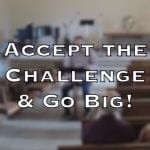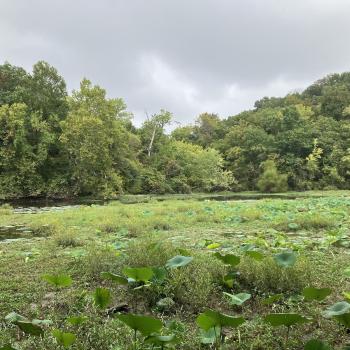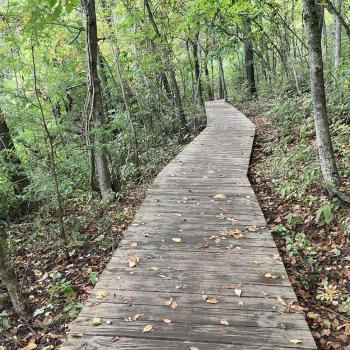And he said to them, “Come away by yourselves to a desolate place and rest a while.” For many were coming and going, and… (Mark vi.31.a, ESV). Now, I really don’t like it when we try to read our cultural experience back into a First Century hermeneutical endeavor, neither with Biblical hermeneutics nor with social science hermeneutics.
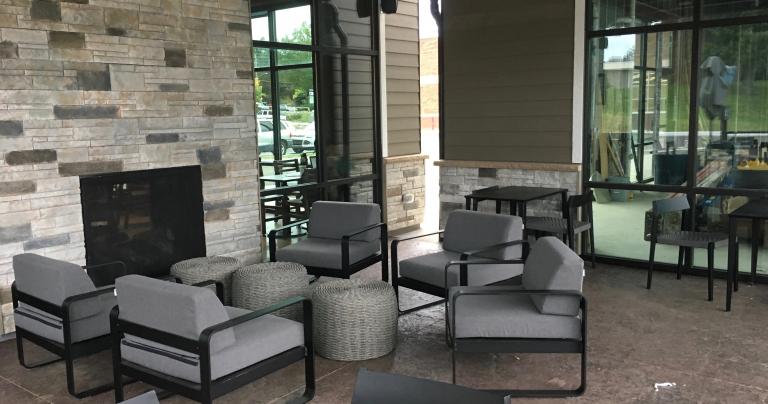
Mark vi.31.b
…they had no leisure even to eat.
Compare Mark vi.31.a to Mark iii.20: Then he went home, and the crowd gathered again, so that they could not even eat.
Mark vi.32.a
Okay, Matthew xiv.13.21; Luke ix.10-17 are in Harmony.
Mark vi.32.b
…the boat to a desolate place by themselves.
Compare Mark vi.32.b to Mark iii.9: And he told his disciples to have a boat ready for him because of the crowd, lest they crush him,
I’ve only seen something like what’s in these Passages once, when we all thought there was an intermission at a concert with 15,000 people.
Then Kenny G entered the main floor off-stage to our left, music playing, and the saxophone was one I had never really played before. He walked right by us, started weaving through the crowd, and everyone thronged around him.
He must’ve had some people like the Disciples to assist with crowd control, but they were probably more like plaincothesmen. I thought, it’s a risk, however what we witnessed seemed to be the one exception to the rule.
We witnessed him playing for people, kneeling in the aisles, and surprising people; almost like a true servant, strangely similar to what I would expect our Lord’s acts of piety would be too, as the crowds thronged around Him.
Okay, let’s just back up to Mark vi.32-33, and then through verse 54
And they went away in the boat to a desolate place by themselves. Now many saw them going and recognized them, and they ran there on foot from all the towns and got there ahead of them…
And when they got out of the boat, the people immediately recognized him
The thought that comes to mind is from Monty Python and the Holy Grail. And I know that if you’re not from the U.K., especially Britain, that you don’t really understand some of the real events they’re parroting.
The scene is a failed attempt by the knights to capture a fort, perhaps as an outpost for sanctuary. The lines are hilarious, but their fellowship is failing. Someone tries to offer another idea to establish a beachhead, but the knights and their leaders strongly dismiss his suggestion.
So did Jesus and the Disciples rest that day? Did they establish something like a fort for sanctuary?
Did Kenny G rest during his intermission?
Did the knights ever get out of their siegework to establish a beachhead for their outpost for sanctuary?
God only knows, but here’s my guess for Mark vi.32-33, 54
Maybe they already had a retreat center of sorts, or a few in their own region. Other people may not have know about these outposts of rest.
Maybe Mark didn’t want to disclose the locale at the time of his writing… or ever… to anybody else. He could have been writing as early as A.D. 60. Let’s face the truth, where could they hide from others then?
If Mark did disclose the location of the retreat center, then I’m not sure it would be a true retreat…
in advance of greater ministry endeavors.
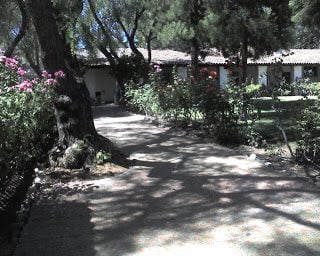
Mark vi.32.b says a retreat/advance of sorts did occur …in the boat to a desolate place by themselves.
Read it again. Did you hear what he just said?
Are you only focusing on our Lord’s acts of piety?
One of the reasons I’m looking at this pericope Mark vi.31-54 is that there are not one, but a few times when Mark states that Jesus is spending time alone. You may ask why? and what are the precipitating events? but I’m on another chapter.
There are also other retreat/advance times, if you allow yourself the freedom to consider what Mark is not saying, i.e. possibly saying implicitly.

Remember… who all the neighbors are to those in the Promised Land in the Intertestamental Period, and how their writings could possibly influence Mark’s way of forming a narrative.


